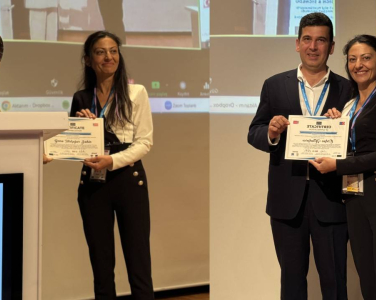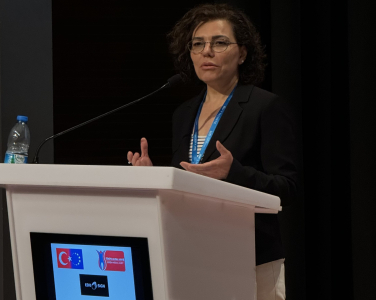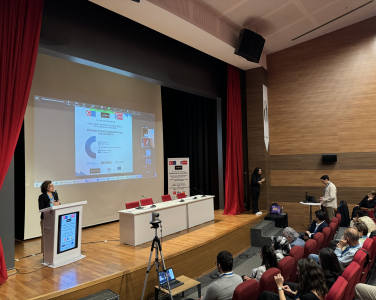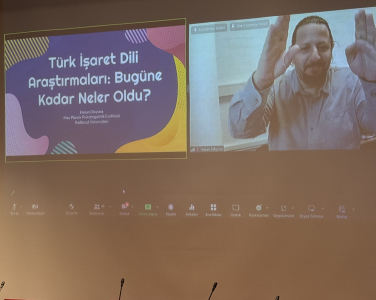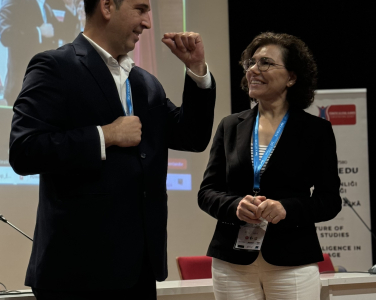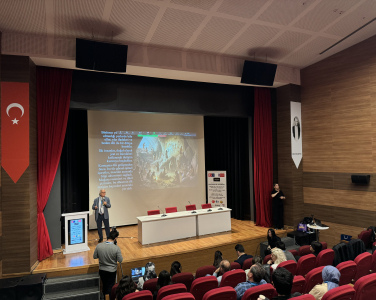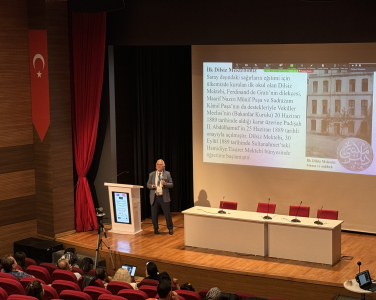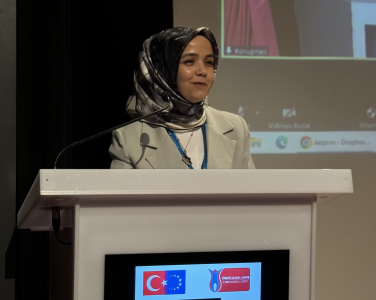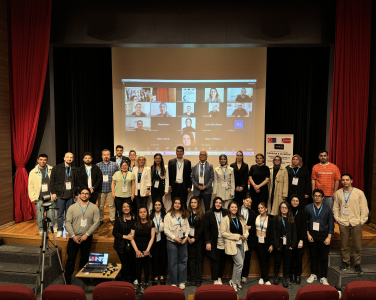The first Sign Language and Deaf Studies Conference entitled "Sign Language for Everyone," was held on May 18th at the Nazım Hikmet Culture and Art House. The conference was organized and coordinated by Istinye University in collaboration with Sweden’s Stockholm University, Finland’s HUMAK University of Applied Sciences, and the Turkish Deaf Confederation and Sign Language Interpreters Association. Joint support was provided by the EU Commission and the Turkish National Agency within the framework of the "EDUSIGN & SIGNEDU: Sign Language Interpreter Training Curriculum Preparation and Joint Initiative in Sign Language Artificial Intelligence" project, carried out within the framework of the Erasmus+ program.
The conference consisted of 4 separate sessions and nine varied presentations both face-to-face and online. The conference presentations and discussions related to efforts for equal access to education and communication for the deaf. Important views and aspirations for the project's development were shared.
The conference began with opening speeches by EDUSIGN Project Coordinator Dr. Ülkü Kölemen, Sign Language Interpreters Association President Banu Türkuğur Şahin, Turkish Deaf Confederation President Orkun Utsukarcı, and Vice-Rector of Istinye University Prof. Dr. Hatice Gülen.
"The Finest Example of Science for Social Change"
Highlighting the significance of the project in terms of education, research, and contribution to society, Istinye University Vice-Rector Prof. Dr. Hatice Gülen stated, "This very special project encompasses all three of our directives to develop products to remove barriers to a disadvantaged group within society. It has become one of the best examples of our university's ‘science for society’ initiative."
After opening speeches, the speakers proceeded with their presentations and discussions. Dr. Dilay Z. Karadöller, a faculty member at METU, delivered a presentation titled "Late Sign Language Acquisition," sharing her research in the field and findings contributing to sign language instruction.
Hasan Dikyuva, a doctoral student from the Max Planck Institute for Psycholinguistics in the Netherlands who had previously taught Sign Language courses at Istinye University, presented Turkish sign language studies’ development up to the present day, emphasizing the need for further research. In another presentation, Dikyuva expressed his views on sign language preparation (class) training.
Banu Türkuğur Şahin, President of the Sign Language Interpreters Association, discussed the significance of the project, sharing her preliminary thoughts on the preparation of the Sign Language Interpreter Training Curriculum program. She reported that this study is a first in Türkiye and emphasized its value.
Samet Demirtaş presented a collaborative project between the Turkish Hearing-Impaired Association and Boğaziçi University, discussing innovative approaches and technologies used in "Bilingual Stories," a work that contributes to sign language development in early childhood.
Dr. Hasan Hüseyin Selvi of the Istanbul Directorate of National Education presented "Sign Language Education Issues from Past to Present," sharing problems and proposed solutions.
Prof. Dr. Şükrü H. Akalın of Hacettepe University provided valuable insights and experiences on the "History and Development of Turkish Sign Language."
Dr. Fatmanur Alsancak of Sakarya University reported solutions to discrimination faced by the deaf community.

